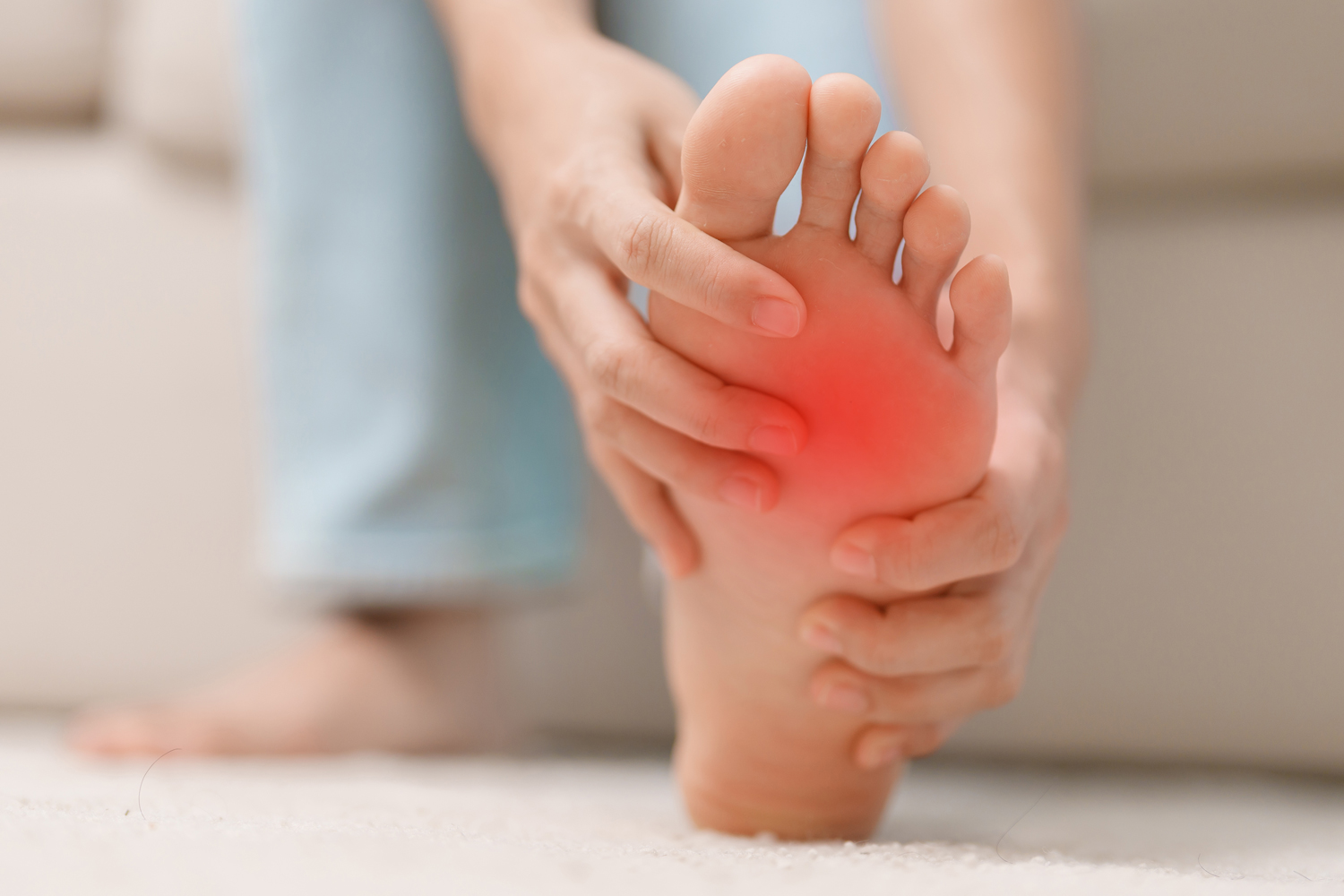SENSORIMOTOR TRAINING, an exercise program designed to stimulate the nervous system and improve motor control, reduced the risk of chemotherapy-induced peripheral neuropathy, a type of nerve damage caused by some types of chemotherapy in a study of cancer patients published in the July 2024 issue of JAMA Internal Medicine.
The study followed 158 patients in Germany who were undergoing cancer treatment with oxaliplatin or vinca alkaloids, two chemotherapy drugs associated with high rates of peripheral neuropathy, which can present as numbness, tingling, burning, pain and other nerve-related symptoms. Study participants were randomly assigned to sensorimotor training or whole-body vibration training, which involved standing on a vibrating platform, twice each week for 15 to 30 minutes. All patients received standard treatment, including a third group of patients who didn’t participate in sensorimotor training or vibration training.
The researchers found that sensorimotor training decreased the onset of peripheral neuropathy by 50% to 70% compared with standard care, depending on the type of chemotherapy patients received. “Patients who did sensorimotor training in combination with vinca alkaloid chemotherapy had the lowest incidence of chemotherapy-induced peripheral neuropathy,” says Fiona Streckmann, a sports scientist at the University of Basel and the German Sport University Cologne, the study’s lead researcher. “They benefited the most from sensorimotor training.” Whole-body vibration training wasn’t effective for reducing peripheral neuropathy, but it was helpful for reducing pain and improving balance, Streckmann says.
An Emerging Field of Exercise Science
“Sensorimotor training has to be performed in a specific way to be effective,” Streckmann says. “We have spent years of research to know what sensorimotor exercises should look like, how many repetitions patients should do and how many seconds of rest there should be between the repetitions.”
Patients in the study’s sensorimotor training group performed supervised balance exercises on increasingly unstable surfaces. For patients who were bedridden, a modified version of the routine was implemented. “Imagine if you’re walking outside barefoot over pebbles, then wood chips, then sand and then large stones,” Streckmann says. “We can simulate that in a hospital setting. The sensory input of touching different textures, even if those textures are at the end of a bed, can cause nerves to fire.”
Sensorimotor training is so new, your doctor isn’t likely to recommend it and you can’t just try it at home just by watching a YouTube video. Still, Streckmann and her team are hoping it will be available to more patients soon. They are developing a free mobile app that will make their research accessible so patients worldwide will eventually be able to safely perform sensorimotor training on their own or find a sensorimotor training center with trained specialists. That’s the goal. “We have all the research. Now, we just have to get it out there,” Streckmann says. You can sign up on Streckmann’s website to stay informed about when the app is available. (The website is in German but has an option to be viewed in English.)
Exercise Your Options
Meanwhile, if you’re undergoing chemotherapy, try to stay as physically active as possible. “Research shows that exercising during chemotherapy may improve neurofunction,” says Erika Rees-Punia, senior principal scientist, behavioral and epidemiology research, at the American Cancer Society. “Exercise can increase blood flow, and it might also reduce degeneration in the nerve axons, which are some of the proposed mechanisms for a reduction in chemotherapy-induced peripheral neuropathy.”
Exercise during chemotherapy doesn’t have to be strenuous to help prevent symptoms of chemotherapy-induced peripheral neuropathy. “You should be empowered to do whatever you can to stay active, even if it’s just going for a walk, walking barefoot outside and doing strength training exercises with your own body weight,” Streckmann says.
And be sure to keep up the good work after your chemotherapy treatments are complete. “CIPN [chemotherapy-induced peripheral neuropathy] can develop or worsen two to three months after chemotherapy is over,” Rees-Punia says. “In this study, the sensorimotor training lasted for the duration of chemotherapy, but it would be interesting to see if it makes a difference two or three months after treatment ends,” she says.
Cancer Today magazine is free to cancer patients, survivors and caregivers who live in the U.S. Subscribe here to receive four issues per year.





